Lecture 15: Thread Local Objects
Overview
- Queue Locking Strategy
- Thread Objects
- Implementing CLH Lock
Last Time
Compared
- TAS lock
- TTAS lock
- Backoff lock
Shortcoming:
- Not starvation-free
- All threads access same variable concurrently
Today
Implementing a queue-based lock
- Idea:
- use linked list representation of a queue
- each thread controls a node, sees predecessor node
- use node to signal status to successor
- New construction:
- thread local objects
CLH Lock
Each thread has:
-
Node myNodenode “owned” by thread -
Node myPrednode owned by predecessor thread
Each Node has:
-
boolean locked:-
myNode.locked = truesignals I want/have lock -
myNode.locked = falsesignals I have released lock
-
Thread acquires lock when myPred.locked is false
CLH Lock Initial State
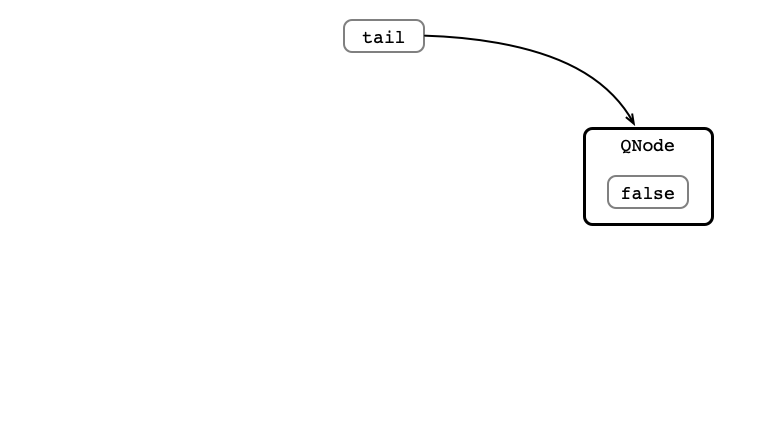
Thread 1 Arrives
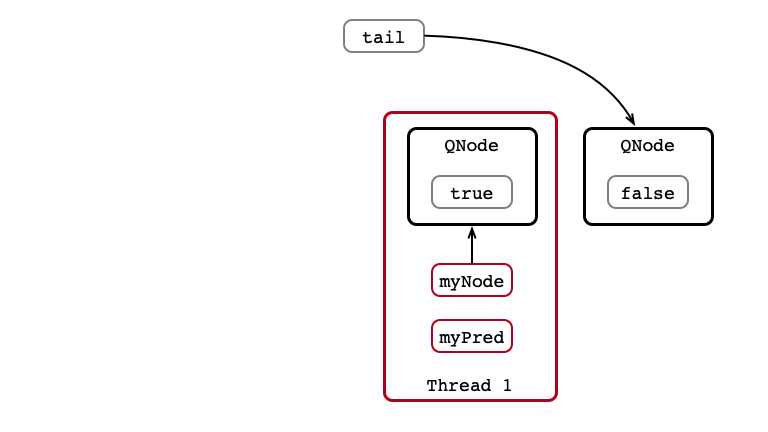
Thread 1 Acquires Lock
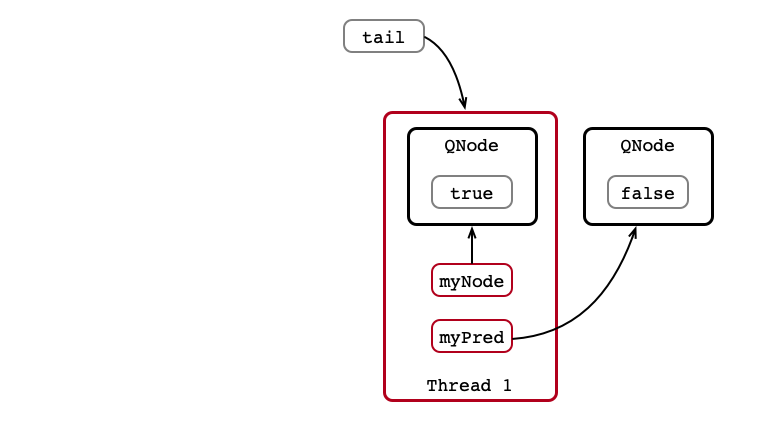
Thread 2 Arrives
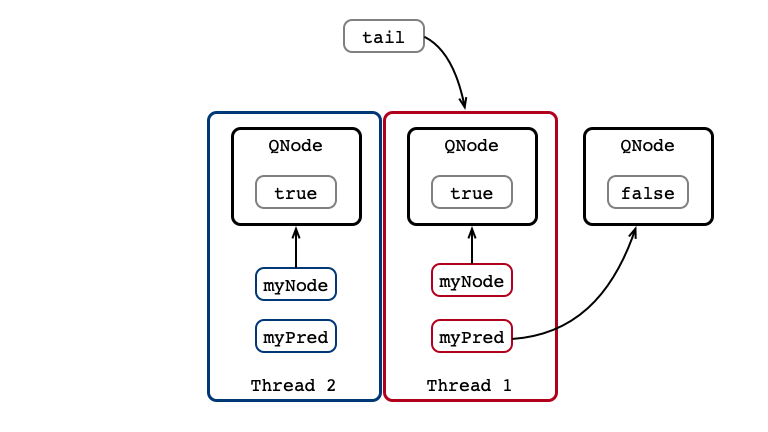
Thread 2 Locks
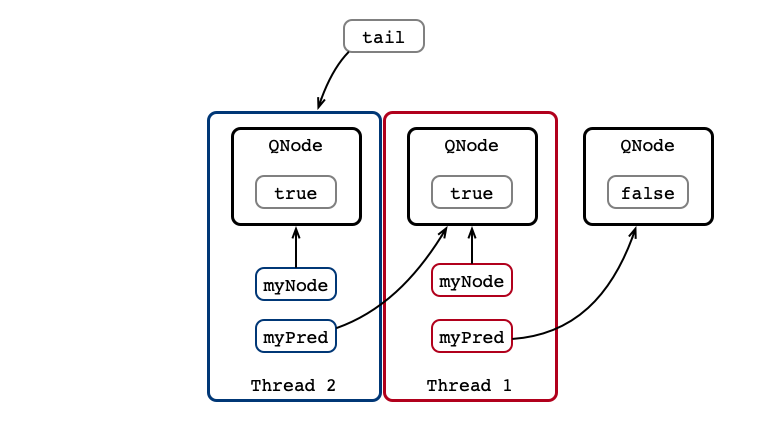
Thread 3 Arrives
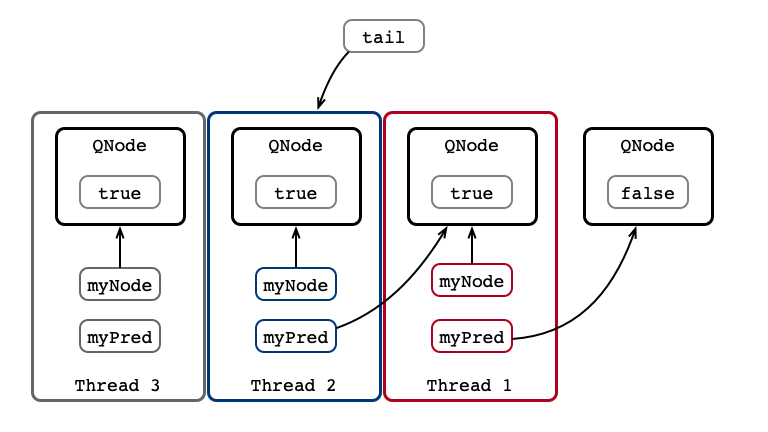
Thread 3 Locks
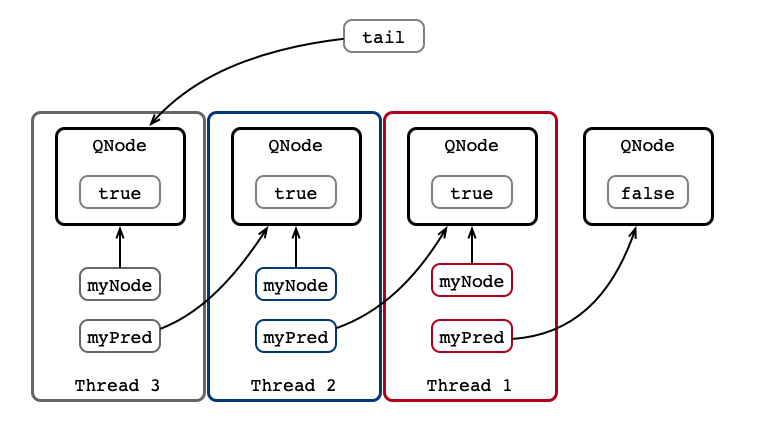
Thread 1 Unlocks (1)
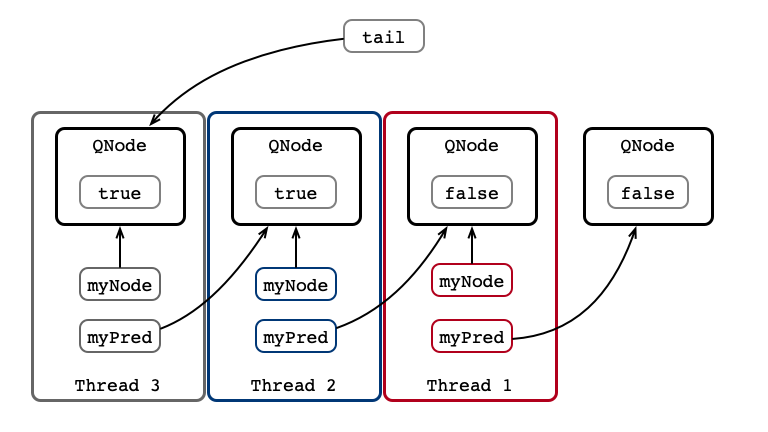
Thread 1 Unlocks (2)
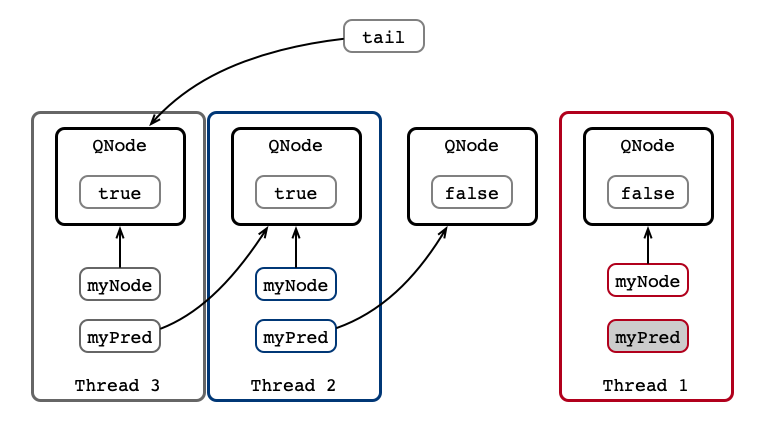
Thread 2 Unlocks
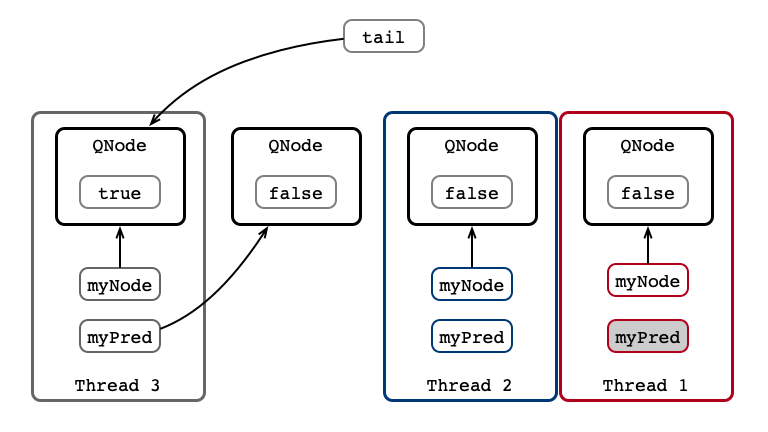
Thread 3 Unlocks
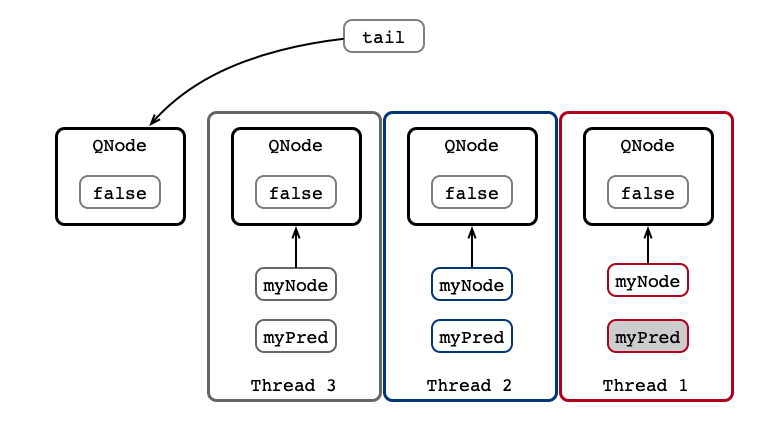
A Subtlety
When a node locks, 2 things happen:
- updates (shared)
tail - updates (own)
myPred
In what order should these updates occur?

Swapping Atomically
Use AtomicReference<...> class
- has
getAndSetmethod- returns previous value
- sets new value
- atomic
- use
myPred = tail.getAndSet(myNode)
Another Subtlety
Each thread has own variables
myNodemyPred
How do we get different variables for each thread???
Interlude: Thread-local Objects
Java (generic) class: ThreadLocal<T>
- Make a
Tfor each thread - Some
ThreadLocalmethods:-
T get()returns current thread’s copy of variable -
protected T initialValue()returns current thread’s initial value- you’ll want to
@Overridethis to initialize
- you’ll want to
-
void set(T value)set value of current thread’s copy
-
Ugly Syntax
Make a MyClass instance for each thread:
public class TLObjects {
private ThreadLocal<MyClass> myInstance =
new ThreadLocal<MyClass>() {
@Override
protected MyClass initialValue() {
return new MyClass(...args...);
}
};
}
Uses anonymous inner class construction
- syntax of constructor call, followed by
{...} - “
...” implements/overrides methods
An Example: ThreadId
Make a class that assigns IDs to threads sequentially
Fields:
-
static AtomicIntegerthat stores next ID to be assigned -
static ThreadLocal<Integer>that stores thread’s ID
Methods:
-
static int get()returns value of thread’s ID
Why is everything static?
ThreadID in Code
Using ThreadLocal for CLHLock
Fields:
- Shared reference to
tailnode- must be
AtomicReferencetogetAndSetatomically
- must be
- Thread local (references to) nodes
-
myNode, theNodeI initially own -
predNode, initiallynull
-
Methods:
-
lock()- set
myNode.locked = ture - atomically:
- get shared
tailnode - set
tailtomyNode
- get shared
- wait until
myPred.locked == false
- set
-
unlock()- set
myNode.locked = false(releases lock) - update
myNodetomyPred
- set
Testing CLHLock
Next Time
- Linked Lists